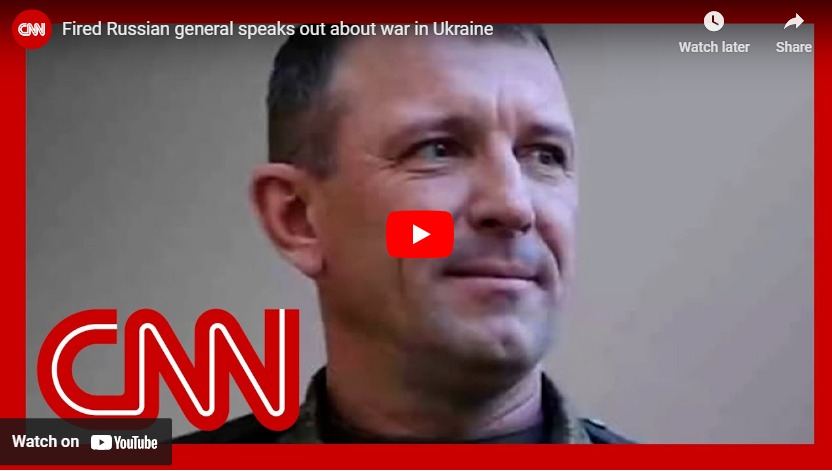Russian General Dismissed for Criticizing Putin’s War Strategy: A Deep Dive into the Crisis
In a recent development, a high-ranking Russian general was dismissed from his duties for publicly criticizing the war strategy of President Vladimir Putin. The general, Ivan Popov, was in command of the forces stationed in southern Ukraine, a critical frontline near Zap Riga. Popov was relieved of his duties after he revealed the harsh realities of the battlefield to the public.
In an audio recording intended for the Russian populace, General Popov candidly discussed the challenges faced by the Russian army. He highlighted the lack of counter-battery combat, the absence of artillery, reconnaissance stations, and the high casualty rate due to enemy artillery. Popov also brought up other issues and expressed his concerns at the highest level, which led to his dismissal.
Popov, who was popular among his troops, accused the top Russian leaders of betraying the military. He alleged that the senior commanders saw him as a threat and hastily arranged for his dismissal. The Minister of Defense signed the order, effectively removing him from his position.
The general’s dismissal has sparked a debate about the potential consequences he might face for speaking out. It’s worth noting that another senior Russian military official, General Sergei Servian, who led an armed rebellion against Putin, has not been seen since the attempted coup. A Russian lawmaker recently stated that Servian is under arrest.
In light of these events, General Wesley Clark, the former NATO supreme allied commander, and Roman Brannan, a Russian journalist and the founder of the investigative journalism site Project shared their insights. Clark suggested that the dismissal of General Popov indicates significant stress within the Russian military, which could be advantageous for the West, Ukraine, and the United States.
Brannan, on the other hand, shared his latest findings on Yevgeny Prigozhin, a long-time associate of Putin, who has not been seen since the failed coup two and a half weeks ago. Brannan painted a grim picture of Prigozhin as a sadist, obsessed with cruelty, and highlighted his close relationship with Putin dating back to 1995.
The situation remains uncertain, with many speculating about the potential outcomes. Clark warned against assuming that Putin’s position is weakened, suggesting that he might be using the situation to tighten his grip on power. Meanwhile, Brannan reported that Prigozhin was being treated for abdominal cancer, which might have influenced his decision to start the rebellion. The situation continues to unfold, with the world watching closely.
This was first published HERE

